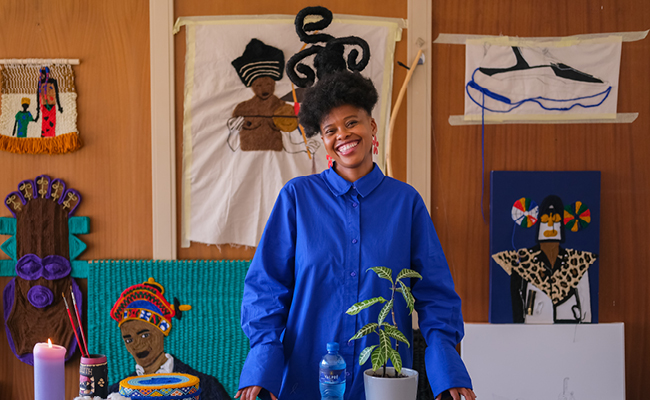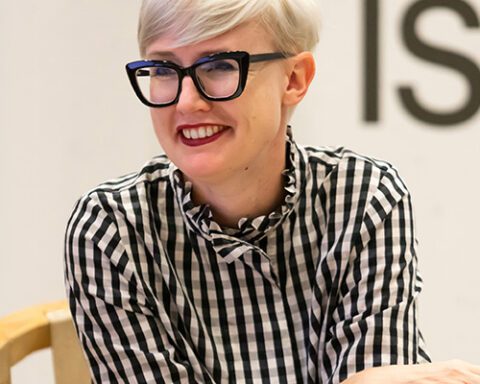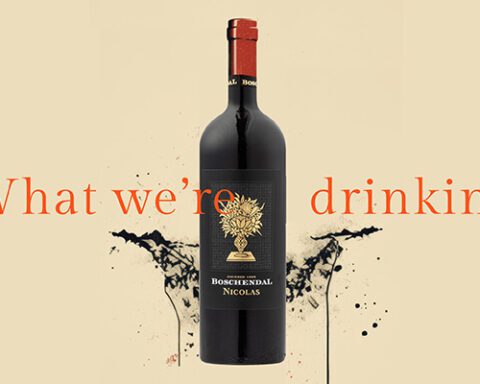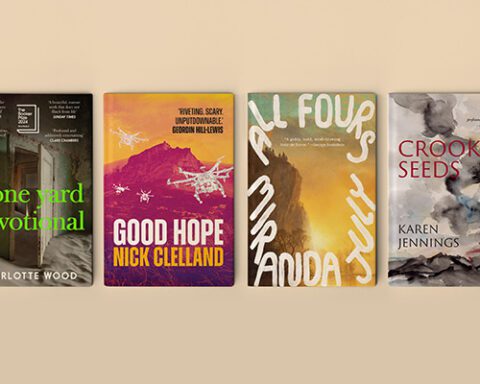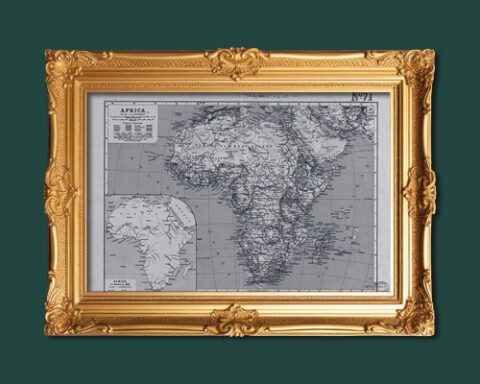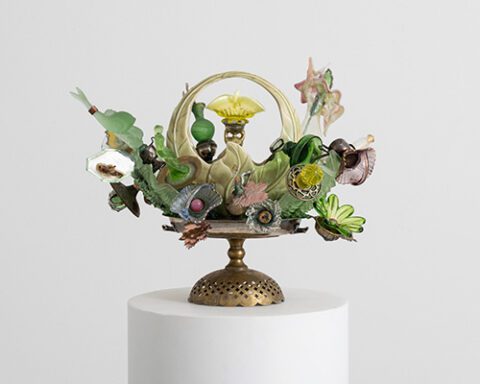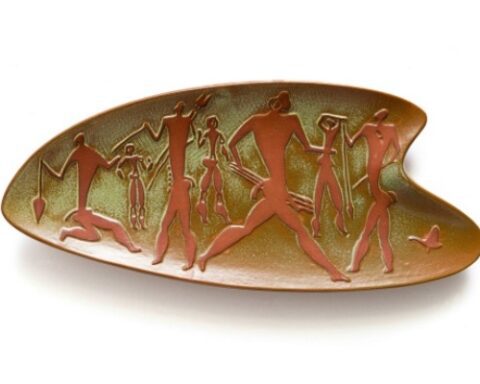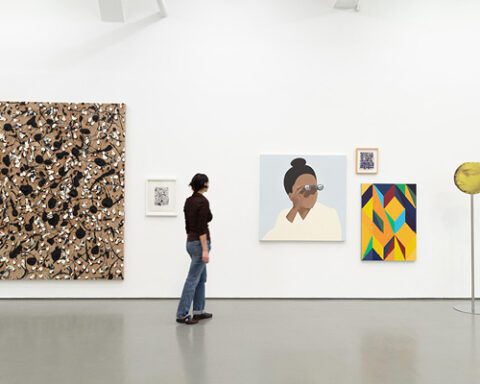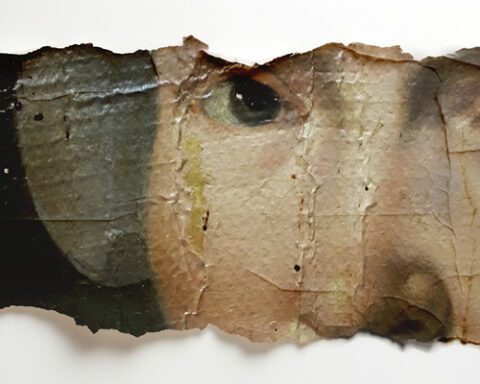There’s a saying among Black women: “Your skin clears when your hair is done.” It’s rooted in the notion that for a lot of women, their confidence starts with their hair. It is a crucial part of their identity, influencing how they feel – how they walk and how they navigate through the world. Fresh braids literally put us in a good mood, it’s a proven fact!
But it’s more than that; there’s a symbolic aspect to it too, as well as a political one. Artist Nikiwe Dlova has stepped into that space, creating works and headpieces that engage with the many facets of Black hair.
Dlova’s latest pieces, recently showing at Path Nomad, at Joburg’s 44 Stanley, present a different side to her craft. Usually known for her colourful artworks, which play on materiality – from synthetic hair to wool, beads and shells – these works are minimal and monochromatic. “I wanted people to feel the familiarity of my work with themes that I’m exploring with hair, but now in a different texture and medium,” she tells Currency.
Still talking to the versatility of hair, the three pieces made from black acrylic paint and impasto use patterns to create multidimensional shapes. For instance, with the satellite piece titled Ethereal Braid, which looks like a woman wearing a braided satellite on her head, Dlova says she wanted to touch on hair as a connector or WiFi – introducing the interconnection as an extension of the self.
“There are many interpretations – I also wanted to allude to the scientific side of hair that we normally don’t talk about,” she explains.
Another piece, titled Braid Identity, looks like a fingerprint from afar but as you move closer the patterns and shapes form a braid adding a new layer to the piece.
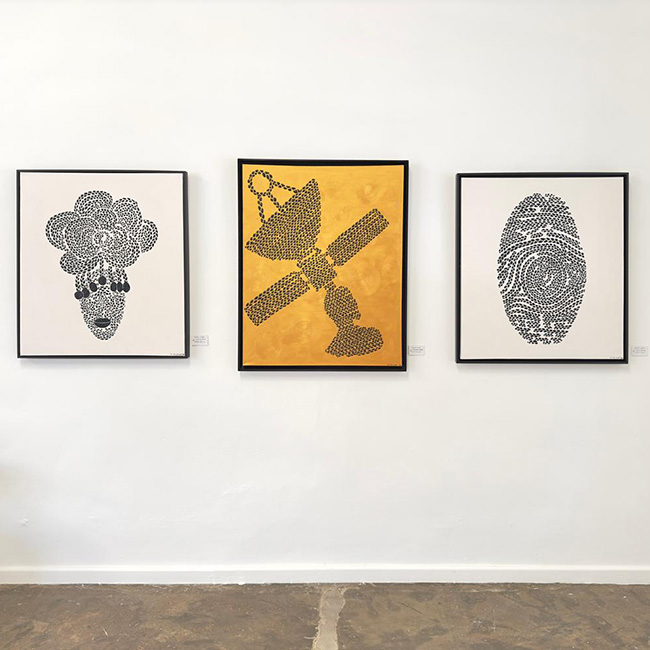
As a businesswoman, this collection was Dlova’s way of creating pieces that aren’t as time-consuming and can be sold to a wider audience and market. She wanted to create a collection that could live in commercial or private spaces.
Through her business Ownurcrown, her pieces live past the gallery space and into the everyday. She has collaborated with Glamour and Foschini, styled and crafted pieces for African superstars from former Miss Universe Zozibini Tunzi and jazz artist Zoë Modiga to Kenyan content creator Elsa Majimbo. Her work has been exhibited in Lagos, Nigeria, and was in one of the music videos for Beyoncé’s Black is King album.
The dexterity of her hairstyles and pieces brings the Black hair discourse to the forefront, creating a healthy space for Black women – and people, in general – to see the limitless creativity of hair, encouraging respect and grace towards Black hair.
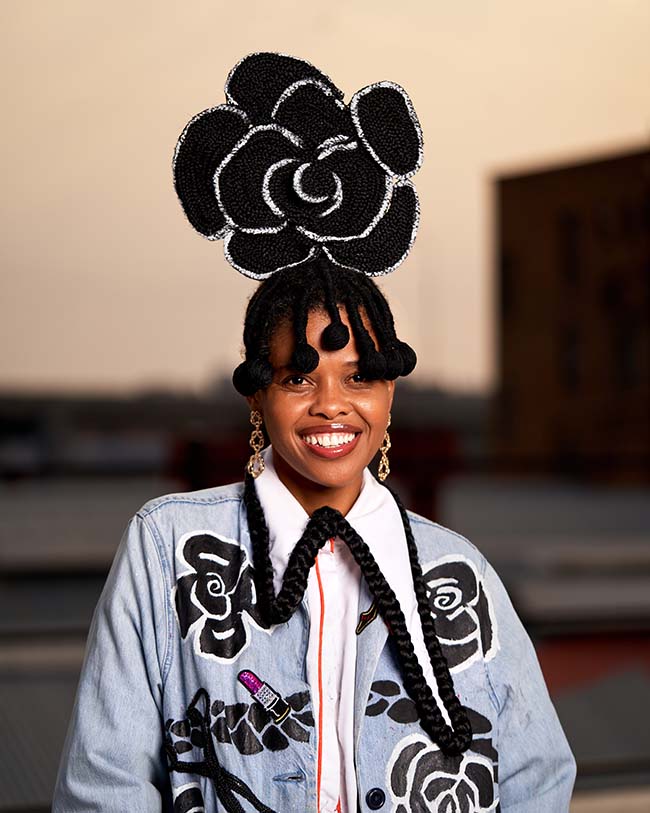
A broader context
We can’t pretend that the dialogue towards African hair hasn’t been complicated and loaded, and that it continues to influence how women interact with their crowns to this day. From as early as the 15th century, it was through hair that different African tribes showed their social hierarchies and traditions. For women, it symbolised different stages of life – the transition into womanhood, becoming a mother or wife, or symbolising the loss of a family member. From braids to Bantu knots, cornrows to dreadlocks, Black hair has always been an extension of the self. It is personal and spiritual and requires protection, hence many Black people believe that your hair should not be touched by just anyone.
Apartheid South Africa deepened the stereotypes towards Black hair by using it as a tool to segregate South Africans. The unfortunate reality is that these stereotypes remain pervasive today and have infiltrated South African schools, where policies are introduced that police Black hair, from its length to its texture, and colour.
The monetisation of Black hair also makes things challenging. With new products flooding the shelves to make hair more manageable, it feeds the already overwhelming perspective that having natural hair is expensive and difficult.
All these factors contribute to the relationship that young girls have towards their hair – viewing it as something that needs to be tamed, that is expensive and unmanageable.
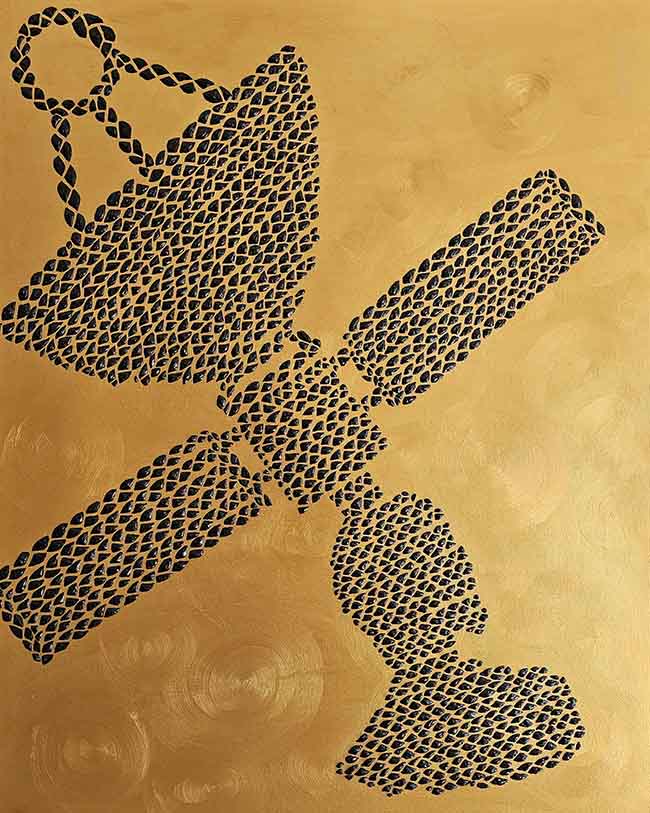
Conversely, and importantly, Dlova through her art creates an affirming language towards Black hair. By moulding the historic hairstyles that have lived for generations in Black families while adding her own inventions to the mix, she influences how women see their hair.
“It starts with knowing yourself and being curious in understanding your hair, its texture, what it can do, and what products to use,” she says. “We are so hard on our hair, and we take it too seriously that we don’t make time to play and have fun with it.” She emphasises the importance of patience when it comes to Black hair, pointing out that it will change over time.
It is only recently that Dlova discovered what her own hair needs – just water and oil. She encourages people to spend enough time with their hair, to learn what it needs. As she puts it, “it’s a work in progress – there is no finish line or final destination when it comes to hair”.
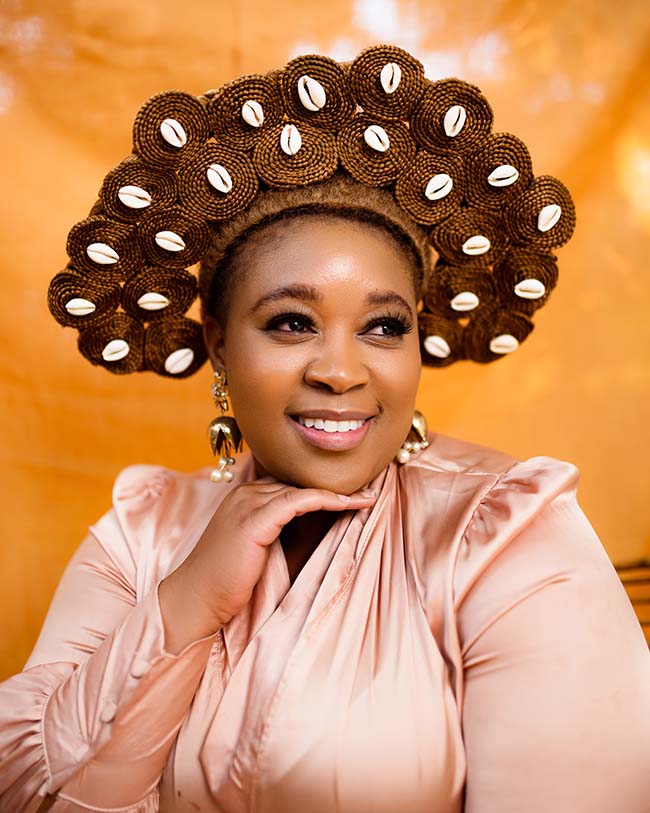
Top image: Nikiwe Dlova. Pictures: Courtesy Nikiwe Dlova
Sign up to Currency’s weekly newsletters to receive your own bulletin of weekday news and weekend treats. Register here.
